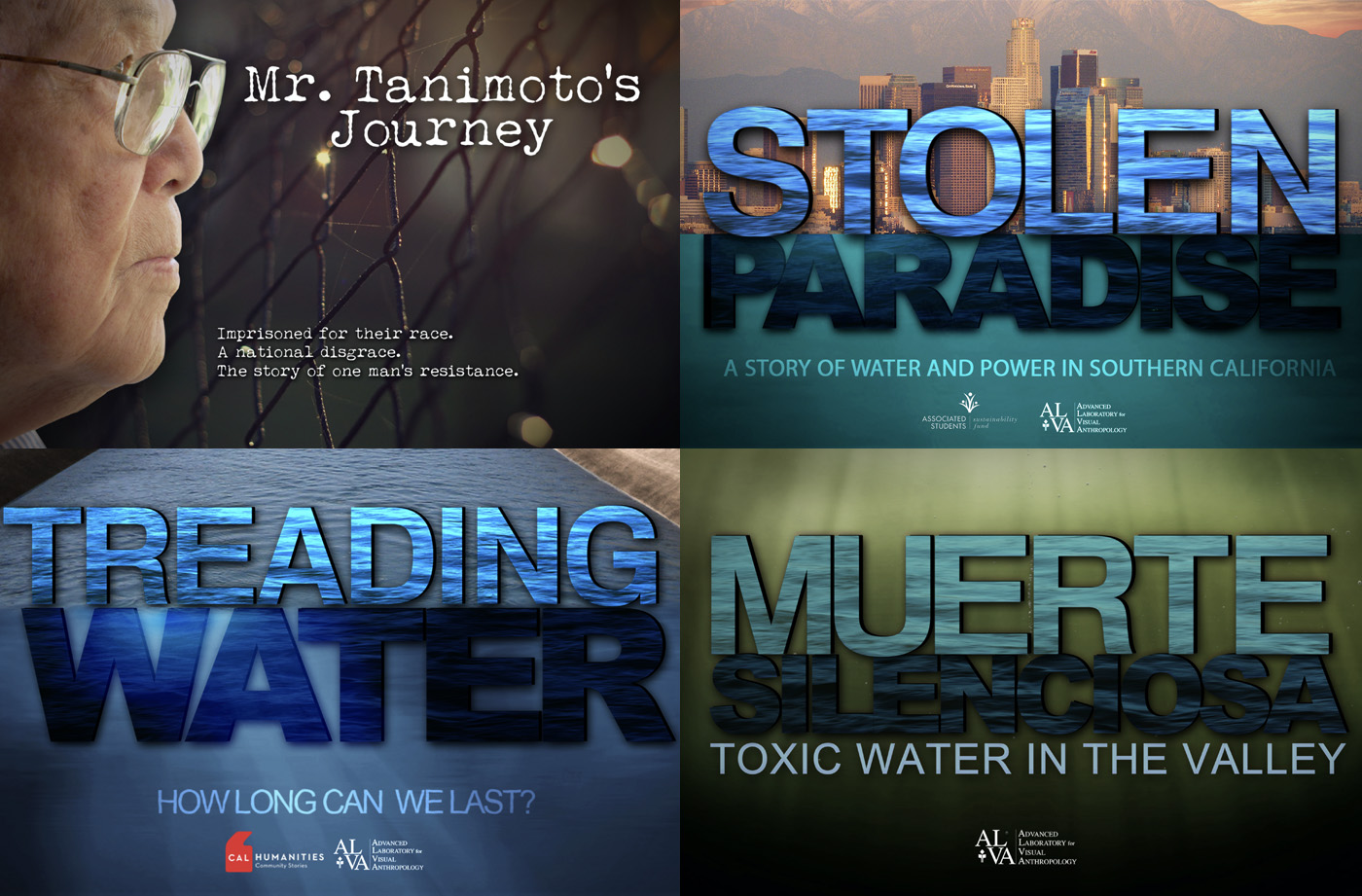KIXE PBS to Showcase ALVA-Produced Films in August

Local Public Broadcasting Service station KIXE PBS will air a series of documentary films from California State University, Chico’s award-winning Advanced Laboratory for Visual Anthropology (ALVA) next month.
Every Tuesday in August, KIXE PBS will air an ALVA-produced film in its entirety on its television broadcast at 7:30 p.m. On Thursdays, the station will host the same film as a virtual broadcast at 6 p.m. on its website. Following the virtual broadcast, KIXE PBS will also host a Q&A session with Jesse Dizard, faculty in the Department of Anthropology, who directed all four films.
“We’ve been wanting to broadcast more ALVA films for a while now,” said Julie Driver, who heads up Corporate and Community Engagement for KIXE PBS. “We are happy to support the studio’s efforts and hope to do more with them in the future.”
The showcase will begin with Dizard’s trilogy that explores water issues throughout California—and marks the first time these documentaries will be shown to a broad audience in order of production. Dizard said each film in the series stands on its own, and together they describe the circumstances in which we find ourselves when the state uses—and misuses—water.
“I hope people can recognize at least something of themselves and of their friends and neighbors in those who share their stories in these films,” Dizard said. “And, I hope that audiences can begin to appreciate the magnitude of the problems our ignorance of the environment has created. It is, after all, ultimately our only life support system, and we must start to care for our world while we still have a world worth caring for.”
The film screenings kick off August 4 with “Stolen Paradise,” which explores how the distribution of water via the Los Angeles Aqueduct throughout Southern California (focusing on the Owens Valley) has allowed some areas to thrive—while other areas have completely dried up, endangering livelihoods and lives.
“Treading Water,” airing August 11, looks at a Sacramento Valley community confronted with an uncertain future because of water scarcity. In the new normal of what once was the California dream, activists, commercial fishermen, farmers, local politicians and others share their anxieties and reveal their values in an effort to find common cause, if not always common ground.
The final offering in the water-focused trilogy, “Muerte Silenciosa” (“Silent Death”), airs August 18. This film investigates the long-standing water crisis surrounding the use of chemicals in the agriculturally fertile San Joaquin Valley—and the environmental justice issues that emerge from a contaminated water supply.
The film series wraps up with “Mr. Tanimoto’s Journey.” Following the Japanese bombing of Pearl Harbor in 1941, President Franklin D. Roosevelt declared war upon Japan. Shortly thereafter, he signed the infamous Executive Order 9066, mandating the forced relocation of approximately 120,000 persons of Japanese descent, two-thirds of whom were American citizens. This film is the story of Jim Tanimoto, the last living member of a group of men, known as Block 42, and who still resides in nearby Gridley, California.
Led by the efforts of Department of Anthropology faculty Brian Brazeal, ALVA was been producing films since 2010, thanks to funding from a National Science Foundation, Major Research Instrumentation grant. ALVA is the nation’s first higher education facility to incorporate digital cinema technology into anthropological research and the communication of the results of that research to broad audiences.
For the last decade, ALVA has produced approximately 20 films—and KIXE PBS has been a broadcast supporter since the studio’s beginning, screening the studio’s first efforts from 2012, “A Man Called Ishi” and “California Indian Voices.” Several ALVA films have garnered prominent awards over the years: “Someone You Know” won Best Documentary at the Davis Feminist Film Festival in 2014; 2015’s “Impact of the Frolic” and 2018’s “A Walk Through Time” earned San Francisco Regional Emmy Awards; and “Mr. Tanimoto’s Journey” was named Best Short Documentary at a Nichi Bei Films of Remembrance event in 2019.


